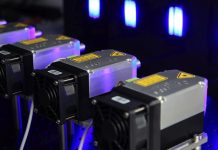A hydrocyclone filter is a mechanical device used to separate solids from liquids based on density differences. It operates without moving parts, using centrifugal force to direct heavier particles outward and downward into a collection chamber, while cleaner fluid exits from the top. This type of filter is widely used in applications like produced water treatment, drilling fluid recycling, and general industrial wastewater management.
How hydrocyclone filters work
Hydrocyclones utilize a vortex effect. Fluid enters tangentially into a cylindrical chamber, causing it to spin rapidly. The centrifugal action forces denser particles toward the outer wall and downward into a collection hopper. Meanwhile, lighter liquid moves upward and out through the overflow pipe. This method is energy-efficient and requires little maintenance compared to traditional filters.
Advantages for demanding environments
Hydrocyclone filters are ideal for harsh environments where other filtration systems may clog or require frequent servicing. They are often used in offshore drilling, mining, and oil and gas processing — environments where equipment must operate reliably under high pressure and with variable particle loads. Their ability to handle large volumes of fluid with minimal energy consumption makes them especially attractive.
Custom-engineered by Dutch Filtration
Dutch Filtration designs and manufactures high-performance hydrocyclone systems tailored to specific industry needs. Their units are engineered for efficiency and durability, capable of handling corrosive fluids, high flow rates, and fine particle separation. Dutch Filtration’s hydrocyclones are often integrated with other treatment systems for optimal results in multi-stage separation processes.
Integration into broader filtration setups
While hydrocyclones are excellent for bulk solids removal, they are often paired with cartridge or bag filters for fine filtration. In such setups, the hydrocyclone acts as a pre-filter — reducing the load on downstream units and improving overall system performance. This multi-stage approach increases operational efficiency and extends the life of filtration components.
Conclusion
The hydrocyclone filter offers a low-maintenance, high-capacity solution for solid-liquid separation in tough industrial environments. Backed by the engineering expertise of Dutch Filtration, these systems deliver consistent performance, helping industries meet both operational and environmental goals.










































